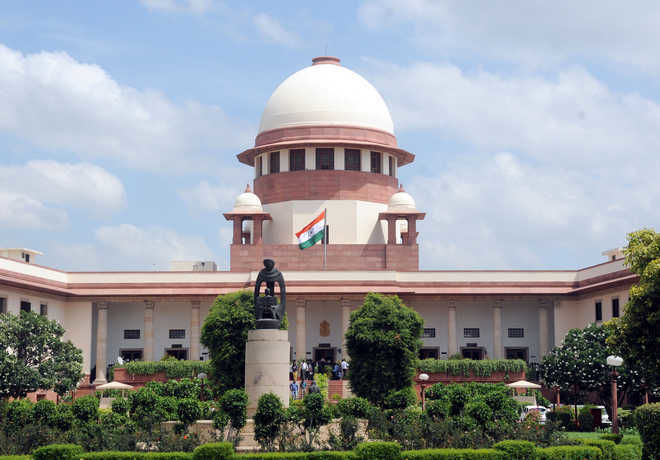Supreme Court: States have powers to tax mineral rights
Satya Prakash
New Delhi, July 25
Holding that royalty payable on minerals is not a tax, the Supreme Court on Thursday said states have the legislative competence to impose taxes on mineral rights and mineral-bearing land.
Editorial: Setback for centre
“Royalty is not a tax. Royalty is a contractual consideration paid by the mining lessee to the lessor for enjoyment of mineral rights. The liability to pay royalty arises out of the contractual conditions of the mining lease. The payments made to the government cannot be deemed to be a tax merely because the statute provides for their recovery as arrears,” a nine-judge Constitution Bench led by CJI DY Chandrachud said.
“The legislative power to tax mineral rights vests with the states. Parliament does not have legislative competence to tax mineral rights under Entry 54 of List I, it being a general entry. Since the power to tax mineral rights is enumerated in Entry 50 of List II, Parliament cannot use its residuary powers with respect to the subject,” the Bench said in an 8:1 verdict. “The state legislatures have competence under Article 246 read with Entry 49 of List II to tax lands which comprise mines and quarries. Mineral-bearing land falls within the description of ‘lands’ under Entry 49 of List II,” the majority said.
While Justices Hrishikesh Roy, Abhay S Oka, JB Pardiwala, Manoj Misra, Ujjal Bhuyan, Satish Chandra Sharma and Augustine George Masih agreed with the CJI, Justice BV Nagarathna dissented to say that states did not have the legislative competence to levy such taxes. She said it “would lead to a breakdown of the federal system envisaged under the Constitution in the context of mineral development and exercise of mineral rights”.
As the Bench pronounced the verdict, senior advocates representing various states urged it to make the verdict operational with retrospective effect to ensure refund of taxes from the Centre even as Solicitor General Tushar Mehta insisted that the verdict should be made effective prospectively. The CJI, however, said the Bench would reassemble on July 31 to hear arguments from both sides to resolve the issue.
Writing the verdict for the majority, the CJI said, “The Indian states are sovereigns within the legislative competence assigned to them… The effort of the constitutional court should be to ensure that state legislatures are not subordinated to the Union in the areas exclusively reserved for them.” The majority, however, held Parliament had “wide enough” powers to impose restrictions, conditions, principles and prohibition on the legislative field created by an entry under Entry 50 of List II of the Seventh Schedule of the Constitution.
“Entry 50 of List II envisages that Parliament can impose ‘any limitations’ on the legislative field created by that entry under a law relating to mineral development. The Mines and Mineral (Development and Regulation) Act as it stands has not imposed any limitations as envisaged in Entry 50 of List II,” Justice Chandrachud wrote.









